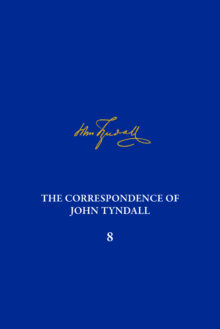
Nathan N. Kapoor
Nathan N. Kapoor is an assistant professor of history at Illinois State University.
The Correspondence of John Tyndall, Volume 8
The Correspondence, June 1862-January 1865
The 318 letters in this volume reveal a great deal about Tyndall’s personality, the development of his career, and his role in attempting to better establish science as a respectable and professional enterprise. However, Tyndall was not above controversy, and on more than one occasion he entered public disputes either in defense of his own or a colleagues’ priority claims over scientific discoveries. Perhaps the most dramatic letters—if not those detailing the accounts of his cousin Hector Tyndale’s courageous exploits in the American Civil War—are those relating to Tyndall’s mountaineering adventures. He climbed in pursuit of science, and often with only a guide, making an attempt on the Matterhorn just days after Edward Whymper had failed in the effort. Toward the end of this volume, Tyndall, Thomas Henry Huxley, and others acquired the Reader. Although short-lived, the journal intended to promote and publish the works, society meetings, and correspondence of scientific men, and demonstrates Tyndall’s commitment to the popularization of science and to facilitating communication within the international scientific community.

